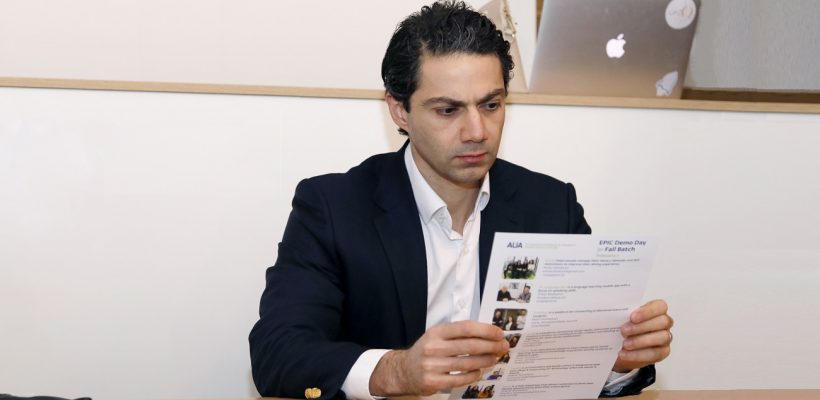
EPIC Mentor Spotlight: Samson Avetian
3 min readBorn in Armenia, Samson Avetian spent many of his academic and professional years in Sweden. After having obtained a master’s degree in financial management and a bachelor’s degree in international relations from Gothenburg University and Stockholm University, respectively, he spent three years at Capgemini Consulting doing international M&A, strategy, and operational efficiency projects for financial services clients. In 2008, Avetian moved to Boston to receive an MBA from Harvard Business School with a focus on macroeconomics and investment management. Avetian is the co-founder and vice president of Angel Investor Club of Armenia (AICA). At AUA, he teaches macro- and micro-economics to undergraduate students. He has been mentoring EPIC startup teams for two years helping them to find solutions to their many challenges, motivating and inspiring them to achieve their goals.
AUA EPIC has recently interviewed Avetian about his thoughts and motivations.
What impacted your decision to return to Armenia in 2010 after a 15-year absence?
Not often has Armenia had the opportunity to advance and prosper as an independent country. Thus, I wanted to contribute to the degree possible to this objective, as an ordinary citizen or via the private sector. Other reasons were as simple as family ties and the ability to manage my previous business from Yerevan.
How did you get involved in the Armenian startup ecosystem?
Being an economist by training, I have been convinced for years that, for different reasons, technology services and innovation would be the main drivers to move forward Armenia’s economy. This is the only sector where “the numbers add up.” As such, it was always my expectation that at some juncture, I would be involved in this more hands-on, whether on the financing side, or via knowledge circulation, or otherwise.
What was the motivation behind establishing AICA?
Similar to others, I consider our compatriots residing abroad as having great untapped potential. And most importantly, these individuals are outstanding professionals in different domains and markets. As such, the knowledge and expertise they possess is invaluable for our entrepreneur-stars that have grand visions and ambitions.
Financing is only one part of AICA. As I think most founders will concur, their networks, domain, and market knowledge are equally or even more important than just bringing finance to the table. I want to believe that by connecting ambition with expertise and finance, we will improve the probability of our entrepreneurs to succeed in their ventures.
How would you evaluate Armenian’s startup potential in the global realm?
There is a lot going on in the Armenian startup ecosystem. But one also has to be realistic. We are just starting and there is a lot of ground to cover. Whether one considers the educational sector, the accelerator/incubator support system, research and science infrastructure, the institutional financing available, and so on. But also on the micro level, ecosystem actors, such as AICA, need to further work on improved knowledge transfer, stronger ties to thought leadership centers, and sharing awareness of market trends and developments.
All of these things need to fall in place before one can actually stand out as a truly competitive player amongst peers. Things have accelerated in the last couple of years but there still is a need to build momentum. And, by the way, the world does not stand still – we need to move faster because we are the ones that need to catch up!
What is your motivation for being an EPIC mentor and instructor?
I’ve been an instructor at AUA for several years now and have seen first-hand the evolution of our students and the progress they are achieving. It does truly bring much joy and excitement to interact with them and support the great progress they are making.
Hopefully, my involvement in the startup landscape, insights from AICA activities, and general willingness to exchange thoughts on best practices, can add at least some value to the EPIC teams. Also, it’s very rewarding to work with EPIC founders because of the path they have traveled through AUA’s academic and institutional framework. Their approach to learning, international outlook, and willingness to consider new insights is not only great to see but, I’m convinced, it increases their chances of success at a later stage.
What advice would you give to EPIC startups?
I hesitate to give advice to startup founders as they know their businesses, markets, and competitors much better than I. Together with their academic acumen, the founders’ determination is not only exemplary but a huge effort per se. If I can support them in any way by sharing contacts/networks or asking questions and offering perspectives from others’ experiences, then that covers a large part of my role.
